Business bottleneck in the 'age of optimism'
- Published
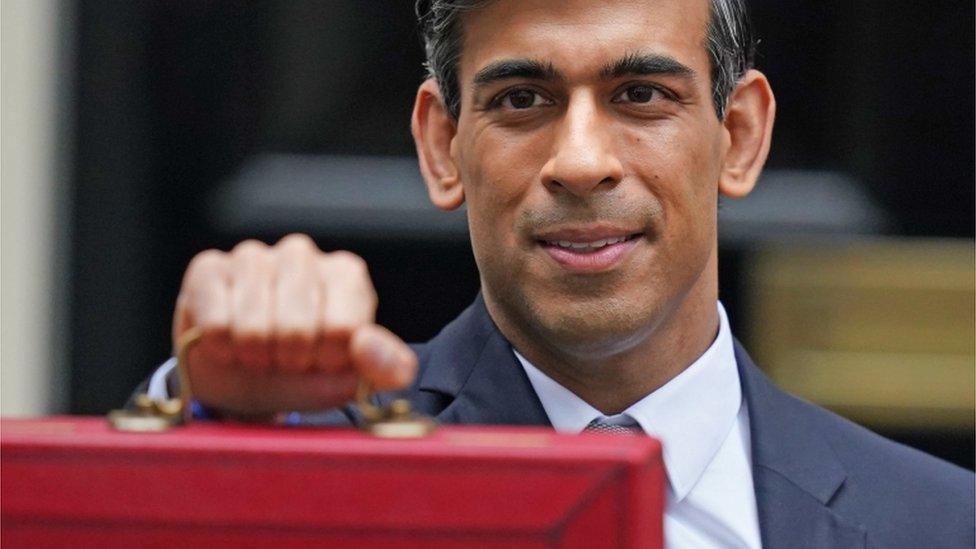
Chancellor Rishi Sunak called for a "new age of optimism"
Chancellor Rishi Sunak's "new age of optimism" requires business to look beyond their current challenges, with supply chains, costs and recruitment. His budget failed to raise their eyes to those horizons.
Despite a long list of measures to boost growth, the key element of it - productivity - remains obstinately weak, according to the Office for Budget Responsibility.
Economic recovery is in better shape than it looked last March, and the long-term "scarring" effect is smaller. Though it's hard to isolate the impact of one from the other, that appears to leave Brexit doing more damage than the pandemic.
In case you missed it, you ought to know that we're living in "a new age of optimism".
In Downing Street, this week's budget sought to set the tone for a high-growth, high-wage, high-productivity economy.
On the lengthy business-focussed section of Rishi Sunak's statement, there was a business rates cut (for England, but watch this space), with funds galore - from greening transport to small firm lending, and from investment for export to rocket-launching.
There were big claims for research, though the target date for achieving "science superpower" status is slipping. There's a visa scheme to welcome skilled, higher-paid immigrants.
The list is long. But do they drive that high-growth, high-wage, high-productivity economy?
The Office for Budget Responsibility (OBR) has looked beyond the bounceback of recovery this year and next, and forecasts anaemic growth to follow, at an annual 1.3%.
While other forecasts picked up from the gloomy OBR outlook last March, those for productivity per hour were down-rated.
Wages are rising, but often because of problems with the economy rather than an improving quality of work.
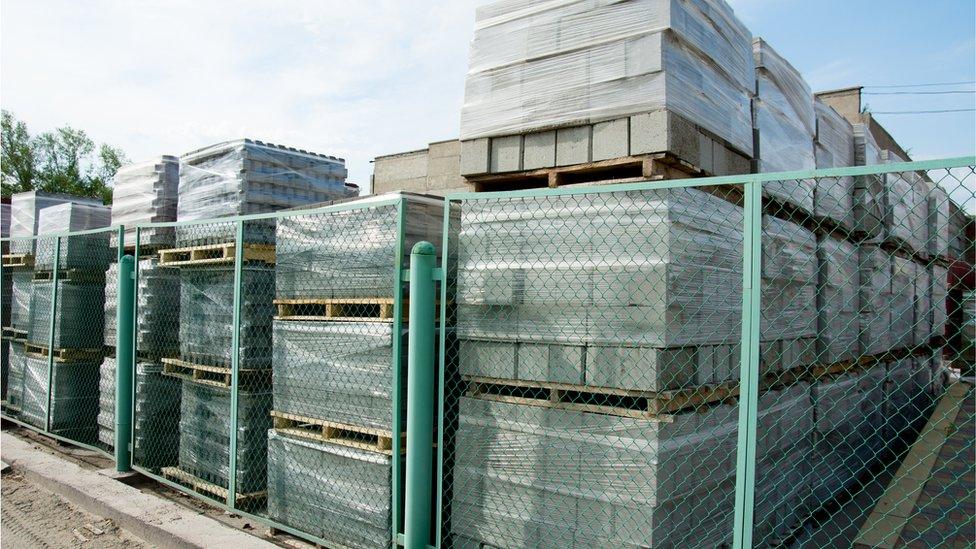
Wage-led inflation has seen prices rises in places such as builders' merchants
There's a risk of wage-led inflation, which can be seen in a rise of more than 10% in pay for truck drivers, helping to explain the 11% increase in builders' merchants Travis Perkins prices in the third quarter, and the most unionised parts of the economy using their leverage to drive up pay.
Real earnings have stagnated, since the decade before last. Disposable household income growth is exceptionally weak, and strongly depressed by increases in tax and the hit to benefits.
And productivity? For all the list of policies intended to stimulate growth, the OBR forecast suggests it's a long way from lifting off its dismal performance over past decades.
Super-deduction
The most positive prospect the OBR could offer for productivity was from the loss of companies that have been kept alive only through government grants, loans and a bar on debt enforcement.
In other words, removing protection from under-performing companies will see some - if not, many - fail. The theory is that resources are then reallocated to more productive investment in other companies. Such resources include capital and workers.

We still don't know if the huge shift towards working from home is positive or not for productivity
There are uncertainties around the behavioural changes that have taken place during the pandemic. We still don't know if the huge shift towards working from home is positive or not for productivity. The answer is probably that it can be, in some sectors more than others, and under the right management.
Another significant unknown is how much labour shortages will see companies invest in labour-saving capital, such as robots, artificial intelligence and autonomous vehicles. It partly depends on managers' estimates of how long the skills bottlenecks will continue.
The OBR thinks they should ease this winter, but will return because of the sustained, reduced capacity of the economy.
Rishi Sunak's 'super-deduction' for business tax - not only cutting tax, but augmenting investment made over a brief period to supercharge investment - is expected to help hasten recovery, but mainly by bringing forward investment that would have taken place anyway.
Despite the Treasury's efforts, the OBR estimate is that business investment to 2025 will still be 7.3% below the levels expected before the pandemic. That accounts for nearly a third of the 2% scarring, or lost productive capacity of the economy, as we come out of the pandemic.
Tax hikes
That gives some of the context for the lukewarm reaction Mr Sunak's budget received from business groups.
The bits and pieces were welcomed, but with caveats, and one of the doubts is that the list of measures adds up to a plan or a route map to get the economy to the sunny uplands of that new age of optimism.
The biggest caveats were that the budget speech ignored the tax increases already announced for business - in National Insurance Contributions, and in corporation tax.
As with the help for some of the working poor on Universal Credit, the mitigation of previous decisions did not go far enough to placate critics.
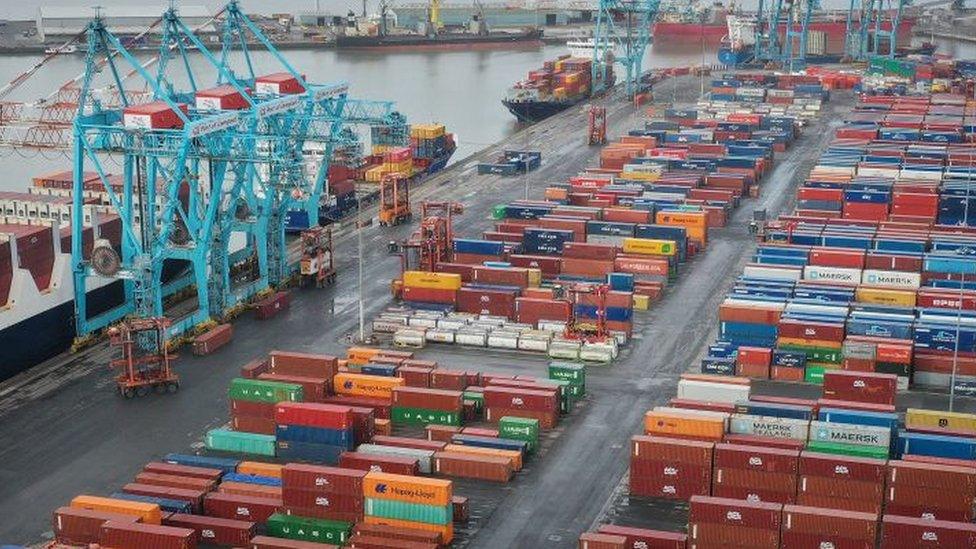
Businesses were also looking for signs that the UK government understands the difficulties it is facing from supply disruption and delay, from rising input costs and from skill shortages.
There was an acknowledgement from the Chancellor, but mainly to offer his explanation that it is a result of global factors and the stresses and strains of the vigorous post-crisis rebound.
There was no acknowledgement that the problems might have something to do with Brexit. And with the reduced estimate for the scarring effect of the pandemic, from 3% to 2% of the economy's capacity, the OBR pointed to Brexit as having a more profound effect than Covid in causing long-term harm to the UK's productive potential.
Trade slump
Both the pandemic and Brexit are seen as changing business behaviour to sourcing closer to home. After decades of growth towards supply chains and customers being more international, the "trade intensity" of the economy has reduced sharply in the past two years.
That's not just to do with Brexit: the OBR cites an international survey saying two-thirds of companies intend to source closer to home, and a fifth intend to hold higher levels of stock - which means greater cost to them. Such changes reduce the efficiency that was built up with globalised, 'just-in-time' operations.
It is hard also to isolate the effect of Brexit on trade from that of the pandemic. With lockdown at the start of this year, a fall in imports and exports was to be expected. Exports to the EU were down 45% - a faster rate than last year's lockdown fall.
But trade with the rest of the world was also hard hit. The lockdown impact obscured much of the impact from new trading arrangements with the European Union. But with infection controls eased, trade recovered, much more strongly with the rest of the world than with the European Union.
By August, EU goods trade was 15% down on 2019 average levels, while rest-of-world trade was down 7%. The Centre for European Reform sought to model an imaginary, non-Brexit Britain alongside these actual figures, and concluded that the effect of Brexit - isolated from the pandemic - accounted for a drop of 15.8% in goods trade, as of August.
That's close to the OBR's initial estimate of the impact of Brexit. But it concludes that there is lots more dynamic in UK-EU trading, as not all the new trading constraints have been implemented, and it will take many years for firms to adjust fully to the changed relationship.
"Economic realities"
These are some of the factors that make relations between British business and British government unusually difficult at the moment.
Business lobby groups note that they're getting the blame for supply disruption, worker shortages and low pay, and being told to sort these problems themselves. Yet they're also being told that business is the key to that new age of optimism.
The voice of business is also in full cry on net zero. Some may dismiss it as 'greenwash', but if business doesn't invest in the transition required to tackle climate change, government efforts alone won't get close.
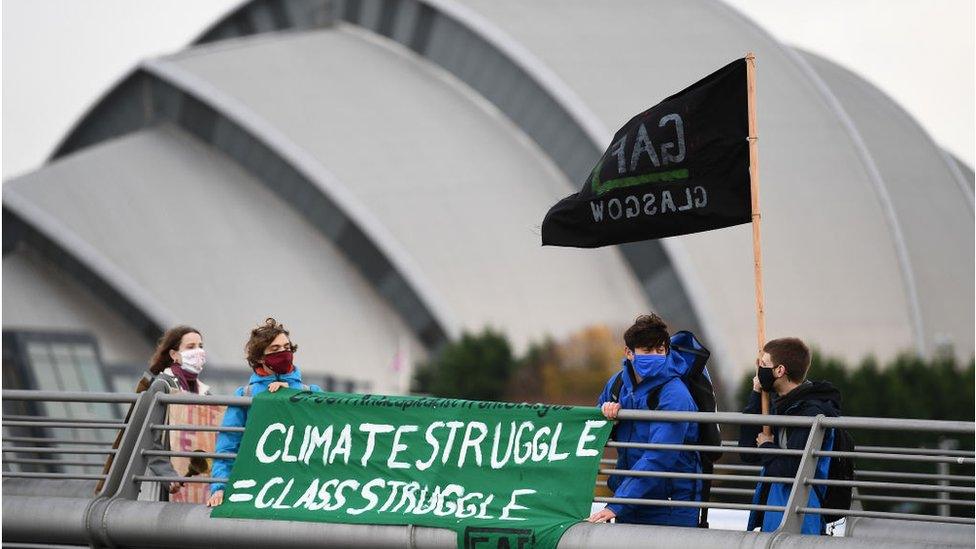
Thousands of activists and protesters are expected in Glasgow for the climate change summit
Yet this was a Budget, a few days before the COP26 summit, that was much less concerned with the seriousness and enormity of that transition than business has become.
Keeping the Rishi Sunak and Boris Johnson show on the road, with their gamble on raising tax and boosting public spending, depends on business using its own resources along with government incentives to sustain the growth necessary to make the Downing Street strategy work.
But in a budget that looked pivotal in so many ways, for the public sector and for politics, that relationship was not given much of a boost.
The CBI big business reaction to the Budget: "It takes several positive steps forward, but isn't bold enough to deliver the high investment, high productivity economy the government seeks... Businesses remain in a high tax, low productivity economy with concerns about inflation."
From Make UK, representing manufacturers: "The current approach would benefit from a long-term economic plan. We face huge technological and societal challenges. Manufacturers are ready to seize the opportunities these challenges will provide and, in many cases, are already providing many of the solutions.
"But they can only do so if government is willing to work with the grain of business and industry. This requires a partnership to develop the vision for our economy."
And from the Scottish Chambers of Commerce, the Budget went "some way" towards setting the conditions for recovery, but: "businesses are asking whether this Budget goes far enough to tackle the significant issues facing them and whether it aligns with the economic realities on the ground, where supply chain problems, skills shortages and rising cost pressures are undermining growth."
There's work to be done on that spirit of new age optimism.
- Published27 October 2021
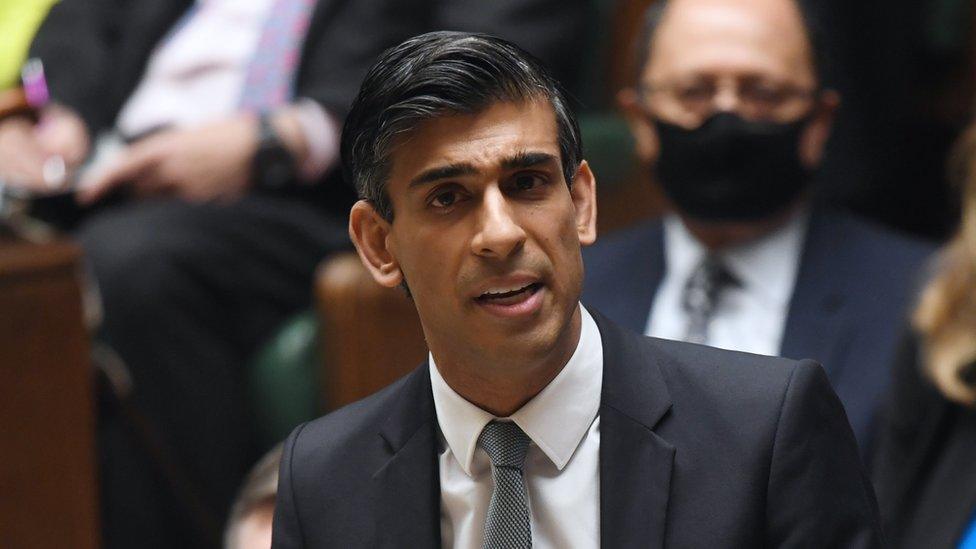
- Published27 October 2021
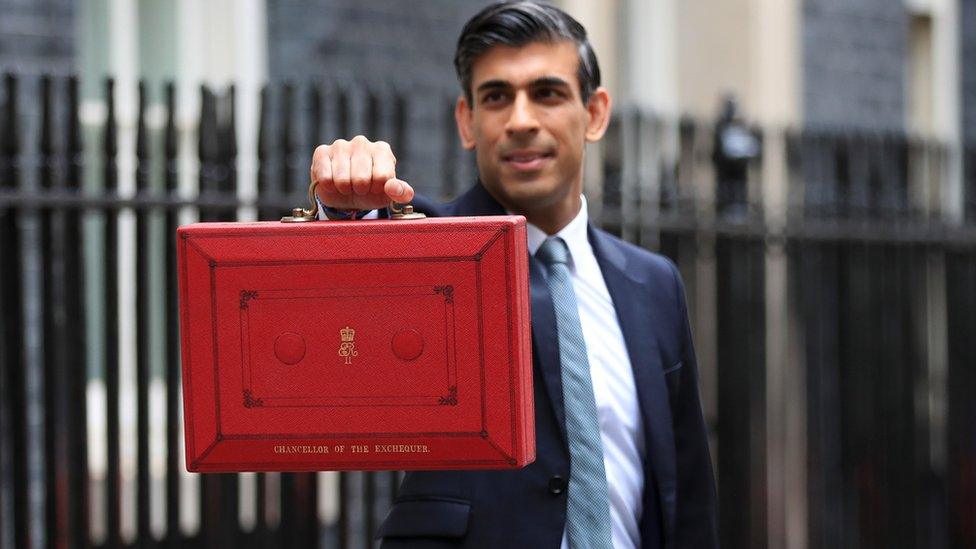
- Published27 October 2021

